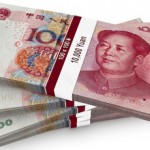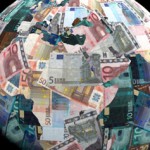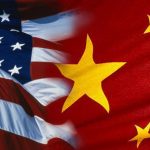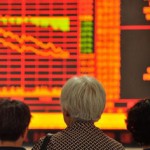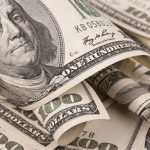USD/HKD remains bullish as HKMA Buys $690 Million
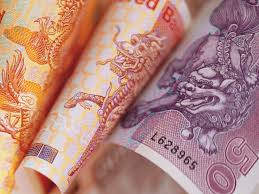
Hong Kong’s de facto central bank bought $690 million on July 25 to defend the city’s 31-year-old peg to the U.S. dollar as it expects demand for the local currency to continue.
“Having regard to the on-going listings, mergers and acquisitions, and dividend distributions in the market, we expect that the Hong Kong dollar exchange rate would remain strong in the near-term,” Peter Pang, deputy chief executive of the Hong Kong Monetary Authority, said in a posting on its website on July 26.
Hong Kong linked its currency to the greenback in 1983 when negotiations between China and the U.K. over the city’s return to Chinese rule spurred capital outflows. It was kept at HK$7.8 per dollar until 2005, when policy makers committed to limiting the currency’s decline to HK$7.85 and capping gains at HK$7.75.
The authority, known as the HKMA, made dollar purchases on July 1 for the first time since December 2012. The Hong Kong dollar traded at HK$7.75 per dollar as of 10:25 a.m. in the city, at the strong-end of the permitted range.
Recent inflows into the Hong Kong dollar have “led many to second guess,” Pang said. Bank of America Merrill Lynch said in a July 16 note that Hong Kong’s funding may remain tighter than normal as banks try to get more cash to prepare for possible disruptions from the Occupy Central movement, in addition to demand from mergers. That came a day after Citigroup Inc. said funding tightness shown on June 30 was probably associated with political uncertainties in the city.
Democracy Protests
HKMA’s Pang didn’t name politics among drivers of demand for the local currency. Activist group Occupy Central With Love and Peace has said it plans mass sit-ins at the city’s financial district if the reforms in universal suffrage of the chief executive election don’t meet international standards. The city also saw its biggest rally in a decade on July 1, the anniversary of its return to China, as protesters marched to seek “genuine democracy.”
The Hong Kong dollar demand is due to commercial activities, because June-September is the peak season for dividend distribution and this year’s total dividend payout is as large as HK$200 billion ($25.8 billion), according to Pang. Citic Pacific Ltd. (267)’s HK$53 billion share issuance for acquisition of its parent’s assets and Overseas-Chinese Banking Corp. (OCBC)’s purchase of Wing Hang Bank Ltd. (302) which involved about HK$40 billion, are also drivers, he said.
Investor Alert
“We have already asked banks to advise their clients to spread out their Hong Kong dollar acquisition to reduce volatility in the exchange rate caused by large amount of purchase of Hong Kong dollars to settle the deals,” Pang said. “However, the large amount of funds involved in these merger and acquisition deals still posed upward pressure on the Hong Kong dollar exchange rate.”
The Shanghai-Hong Kong Stock Connect program, due to start six months after its April announcement, isn’t a reason for an increase in Hong Kong dollar demand, Pang said. The mutual market access plan will start Oct. 13, National Business Daily reported today, citing a broker it didn’t identify. Overseas investors may directly convert U.S. currency into Chinese yuan to purchase shares in Shanghai, without first buying Hong Kong dollars, he said.
Hong Kong’s currency peg means the city must follow the U.S. interest-rate policy, which has been kept near zero since December 2008. Federal Reserve Chair Janet Yellen said this month that borrowing costs may rise sooner than expected.
“The inflows of funds will increase liquidity and hence stimulate asset prices, to which the public should stay alert,” Pang said. “As the U.S. economy recovers and its monetary environment normalizes, there remain considerable uncertainties in the future direction of fund flows. The public should be prudent when borrowing and investing.”
Source: Bloomberg









